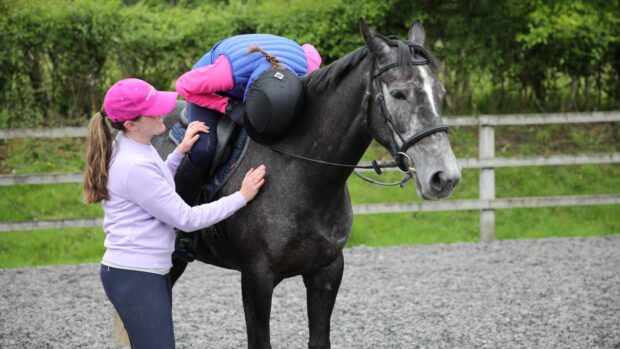You trained for it, looked forward to it, dreaded it and now it is finally here — competition day.
Despite the fact that most of us enter a show out of our own free will, it remains something of a double-edged sword: the potential for lots of fun and utter humiliation combined in one neat package.
So it’s not surprising that despite our best efforts to prepare for the big day, come competition day the army of butterflies that decided to show up out of nowhere ends up having the upper hand.
This is what sport psychologists refer to as pre-competitive anxiety — most riders call it stress or nerves.
What are ‘butterflies’?
Here’s the thing: from an evolutionary point of view, all these physical changes make perfect sense. When presented with a possible threat to a person’s health or life, the body readies itself for a “fight or flight” reaction.
More frequent breaths mean more oxygen to be taken up by the red blood cells, which then have nothing better to do than deliver it directly to the muscles.
Once there, oxygen combined with glucose is transformed into ATP, the energy currency of the body. Add a liberal dose of the body’s own legal drug adrenaline and cortisol, and the body is ready for whatever it takes to stay alive.
And even though the type of stress riders experience is often just a threat to the ego, the physiological reactions are the same. The body readies itself for action.
So really, that flutter of nerves can be a good thing. It makes you more alert, improving your reaction times. It might even help you to focus a little better on the task at hand. You’ll also get tired less quickly.
But being stressed is definitely not a good thing once it starts undermining confidence, either in yourself, or in your horse. Because once you lose confidence, you no longer feel that you know what you’re doing, let alone what you’re supposed to be doing.
Get your butterflies flying in formation
To help you turn your nerves into something that’ll help you perform better, here are 3 simple rules:
Rule no. 1: don’t try and control the uncontrollable
There is absolutely no point in worrying about the things that you can do nothing about on the day of the show. This includes: the weather, the judges or course designers or your fellow competitors and how nice their horses are. Instead focus on the things you can control, such as arriving on time, having all your kit ready, knowing your test, and having a competition routine.
Rule no. 2: routines rock
Put simply, a competition is not the time to start experimenting. Sticking to a planned routine gives you a sense of security, even if all else fails. Routines can involve anything from what music to listen to on your way to the show and how to tack up your horse, to how to structure your warm-up. Just before entering the ring, many riders benefit from going through their test or the course one more time in their heads, seeing themselves perform at the very best of their ability.
Rule no. 3: KISS: keep it simple and specific
Simplicity and specificity are key to knowing what you are supposed to be doing, and, as an extension, remaining confident in your own abilities. On the day of the competition and prior to getting on your horse you should give yourself two or three very specific instructions as to how you intend to ride your test or the course. If you want your horse to be relaxed in the ring, instruct yourself to loosen up through the shoulders and wrists. Or if your horse needs to move forward with more impulsion, be adamant that your horse reacts to your leg the entire time while in the ring.
Find out more about sport psychologist Inga Wolframm’s work at www.ingawolframm.com




